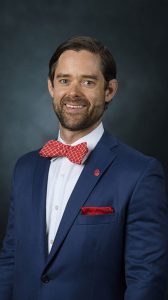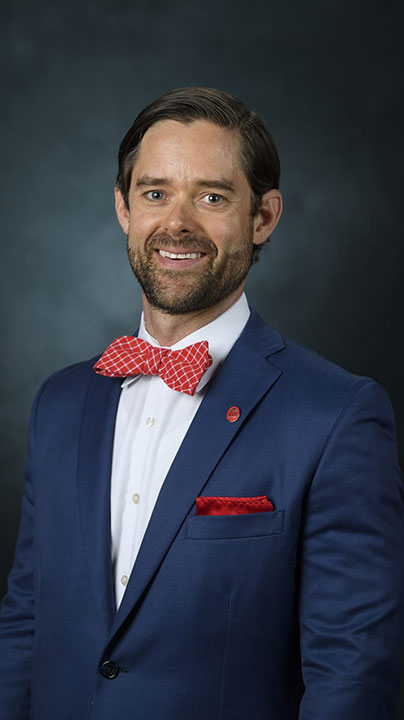The Southern States Communication Association (SSCA) awarded the Outstanding Scholar in Communication Theory Award to University of Mississippi integrated marketing communication professor Graham Bodie, Ph.D., at their convention in Montgomery, Alabama April 5.
“Dr. Bodie’s extensive history of exceptionally high quality scholarship on interpersonal communication, specifically that focusing on the affective, cognitive, and behavioral processes people engage in when attending to others and listening during interaction makes him a worthy recipient of the award,” said Michael Kotowski, chair of the Communication Theory Division within SSCA.
The Outstanding Scholar in Communication Theory Award is given each year to a communication scholar who, in the opinion of the Communication Theory Division leadership, has made a major contribution to the study and advancement of communication theory.

Recipients of this award exhibit a highly productive and exceptional research program that advances the fundamental and theoretical knowledge of basic processes of human communication.
“I am so honored to accept this award, to be recognized among colleagues I admire so deeply,” said Bodie. “When you publish something, you hope that others read it and that it has an impact. Awards like this help you know you’re doing something right.”
In addition to his work at the university, Bodie also serves as Chief Listening Officer at Listen First Project, an organization that encourages conversations that prioritize understanding to bridge divides and mend our frayed social fabric.
“Listening is so fundamental to everything we do as humans, whether in our close, personal relationships or in our more transactional exchanges,” said Bodie. “What shocked me when I entered graduate school was how little we actually know about this important life skill. So, I set out to change that.”
Bodie has changed the field of listening and is recognized as one of the most prolific scholars of communication. He has published over 90 monographs, book chapters, and encyclopedia entries, many of which are considered essential readings in classrooms around the country.
In his most recent project, funded by the National Science Foundation, Bodie aims to study what types of listener behaviors help people continue to express their thoughts and feelings during a stressful interaction.
As a recipient of this award, Bodie will have the opportunity to deliver a spotlight presentation on his program of research that lead him to receive this award at the 2020 Southern States Communication Association Convention in Frisco, Texas.
SSCA’s purpose is to promote the study, criticism, research, teaching, and application of the artistic, humanistic, and scientific principles of communication. SSCA, a not-for-profit organization, exists for educational, scientific, and literary purposes only.


